|
“Peace be with you. As the Father sent me, even so I am sending you. Then He breathed on them and said: ‘Receive the Holy Spirit’.” John 20:21-22. The older I become, the more my eyes are opened to the lack of control I have over things of life, how easily I can become consumed by the priorities of the world, and how duped I can be by the devil. I realize more how important it is for me to be waiting in expectation for Jesus to direct and guard me. Do you remember that the first greeting Jesus gave to those he encountered after His resurrection was “peace be with you”? I hang onto those words because this peace is where I am to live. “Peace I leave with you, my peace I give you. I do not give to you as the world gives. Do not let your hearts be troubled and do not be afraid” (John 14:27). Over the past several weeks, I have been reflecting on the Resurrection during my prayer time. When some of the disciples came and saw the empty tomb, they returned home. Mary Magdalene stayed at the tomb, waiting. If you have a minute, spend some time reading John 20. My reflection over these past weeks has focused on Mary Magdalene. Why did she stay? Understanding more of Mary Magdalene’s story, I recognize how profoundly changed she was by her time spent with Jesus. He had, in a sense, loved her back to life! Her salvation was deeply personal and so life-changing that she was willing to seek Him at the tomb and remain there. She wanted to encounter the Risen Lord. All of this has led me to ponder my own spiritual life. Is my salvation that real, that personal? Am I so completely committed to walking in the will of God that I am always waiting to hear His direction for me? Or am I so distracted by the day-to-day that I have lost that readiness to seek His presence in my life? This introspection awakens my desire to be like Mary – who waited by the empty tomb – wanting to encounter the Lord again whenever He chooses to reveal Himself. I want my relationship with my Lord and Savior to be my paramount priority because my identity, purpose, and vocation are rooted in Him. As a Christian, I proclaim that I want heaven – and that comes with the steadfast choice of the way of the Cross of Jesus Christ. Matthew reminds us, “The road to perdition is wide and many choose it. But the road to eternal life is narrow and few find it” (Matthew 7:13). My ideas, my desires, and my decisions need to be aligned with God’s will. As a wife, mother, daughter, friend, colleague, and neighbor, I must be attuned to His voice, His promptings, His guidance, and His graces. Every thought I have, every little act I do, must be in total unity with my Savior – Who is pure, unconditional love. Yes, I want to be like Mary Magdalene waiting for my next encounter with Jesus so I can go deeper and further into His Sacred Heart and become more loving to the people in my life. The question on a very practical level is: how do I achieve this? How do I stay in this disposition of grace, waiting on the Lord? I am bombarded with uncertainty, chaos, division and fear. Satan is prowling to destroy souls. My mind and spirit are attacked from all directions in this troubling world. But one thing remains the same: God is on the throne of heaven, His love for each of us is never-ending, and His promise to be with us is constant. We are told this over and over throughout the Bible. I believe this and I pray for eyes to see the path to walk through the landmines of the day. I ask Him to renew my desire to live and act in joy each day. I recommit daily to looking for goodness in those around me, to refrain from grumbling or criticizing or holding others in judgment. I drink from the well of the Scriptures, particularly the Psalms and the Acts of the Apostles, to keep my focus on His ways. I receive food to strengthen me from the Eucharistic table, the Rosary, the Divine Mercy chaplet, and singing songs of praise. When God quickens my spirit, I share a compliment, a smile, a hug, an encouraging word, a listening ear, or a prayer. Opportunities present themselves continually and my choices are what keep me in the heart of Jesus! This is what makes my salvation personal and allows me to live in joy and hope when the world screams the opposite. Little acts, one choice at a time, keep me ready for His direction. By myself, I am small and weak. Listening to Christian music, hymns or chants, working through the beads of my Rosary, saying numerous prayers, attending Mass frequently, receiving absolution for my many failings in Reconciliation, and doing an examen before bedtime all help me remain in His presence and live in His will. From these, I can smile more easily, speak encouragingly, think positively and share love unreservedly. My salvation on that Cross in Calvary rejoices in the empty tomb and I stand waiting for my risen Savior to protect me and direct me every step of my journey. Lord help me to be bold, to proclaim your truth and to love always, no matter the circumstances. Give me ears to hear Your direction and feet to follow in Your footsteps so that Your love will flow out of me to everyone I meet. And may all our souls be a wildfire of LOVE that burns into our eternal home You have prepared for us in glory!
0 Comments
How are you navigating daily life these days? Are you scurrying around afraid of what is next or are you charging into each day with enthusiasm and hope? That sounds like the opening to an infomercial about to reveal some amazing product to enhance your life in some miraculous way, doesn’t it? But these are questions we need to ask ourselves as Christians; Jesus calls us to be exuberant about our mission in every moment because every moment counts. Life as we knew it before the Covid-19 pandemic has not returned, and all of us are still in some stage of the mess. But, as Easter people, we hold firmly to God’s promise that He is with us always, supplying grace and wisdom, no matter the circumstances of our present life. And this promise envelopes me personally with great comfort and allows me to begin each day with joy! The Easter message we celebrate again this year guides us through the steps of living in joy, filled with hope, even though our world seems dark and scary. Our daily scripture readings walk us through the Acts of the Apostles as the church was newly formed after the Resurrection and we learn once again of our mission as baptized priests, prophets, and kings in the new covenant Jesus established. Thirty minutes of ingesting current news makes us aware of the many divisions within our nation and on a global scale. There is very little uplifting or good news being reported. Our world is filled with turmoil and unrest, and the doom and gloom can seem overwhelming. But, let’s flash back to over 2000 years ago on a stormy Friday afternoon when Jesus was tortured and suffered an agonizing death by crucifixion and the earth shook. This horrifying event in the news of the time seemed bleak to the early Christians, yet in actuality, this event was the defining moment for all of humanity. It was and continues to be God’s greatest gift to us. In the dismal hours on Good Friday centuries ago, Jesus our Savior exhibited the ultimate “cancel culture” by completely canceling our sins and opening the path for us to enter the glory of heaven! In recent years, we are more familiar with a different type of “cancel culture” – one that is not merciful and has a negative message. Yet, if we focus on walking closely with Jesus, we can experience the freedom that comes from that horrific sacrifice on the Cross at Calvary. Our lives are forever redeemed, and the love and mercy of God allows us to live amidst times of great trial without fear and even be filled with joy. We have been commissioned for the work of heaven and as we live in this Easter season, we have the knowledge of Jesus’ teachings, His examples of how to love and act toward others, and His living Spirit within us to keep us steadfast in being joyful. We can smile when the world is unkind, courageously proclaiming the Good News in a culture that will scoff and try to shame and shun us because, as St. Paul says in Col. 2:13-14, “And you who were dead in trespasses and the uncircumcision of your flesh, God made alive together with Him, having forgiven all our trespasses, having canceled the bond which stood against us…. nailing it to the cross.” This is truly the “divine cancel culture” that heals us and rescues us from sin and death. The secular “cancel culture” reviles people who disagree, seeks to destroy those it determines unworthy, and ascribes to inflicting recriminations and paybacks. The “divine cancel culture” Jesus instituted from that Cross on Calvary expects us to always forgive and cancel the wrongs others do to us, as He taught us: “forgive us our trespasses as we forgive those who trespass against us” (Matt. 6:12). We can confidently choose to walk in the footsteps of our Lord and Savior and practice the principles of faith, hope, and love – love being the greatest of these. We walk together, you and I, as Easter people, united in the mission passed to us personally by Jesus Himself. Even though chaos may be swirling about us, He is who transforms our lives in a miraculous way so that we can live each day with exuberant joy! Help us Lord to be your messengers of love and mercy to the lost, the despairing, the cruel, the innocent and the vulnerable— to draw all your people to your glorious kingdom forever! Amen, Alleluia, Glory!
“Have you seen Him?”
The question is uttered among the bewildered Apostles and echoes out to us this Easter season. In the Gospel reading for Divine Mercy Sunday, Thomas hadn’t seen him. Thomas didn’t believe the men who had become his brothers when they told him about the resurrected Christ. Not even the details of his wounds swayed him. “Unless I see the mark of the nails in his hands and put my finger into the nailmarks and put my hand into his side, I will not believe,” he says. Believing meant vulnerability. It meant more heartbreak. The Man for whom Thomas and the others had left everything, the Teacher who had sent them two by two to preach and heal, the Master who had washed their feet and fed thousands with a few loaves and fish was gone—betrayed, tortured, killed. It was easier not to believe. It was easier to stay hidden away in the Upper Room with a heart as locked up as the doors. It was easier to go back to what they knew. Even Peter resumed fishing. Today as we continue in the third week of Easter, I ask you what the disciples likely asked each other in those first days: Have you seen Him? We prepared for Easter throughout 40 days with prayers, fasting, and almsgiving. We kept vigil with Jesus on Holy Thursday in the Garden of Gethsemane and in Caiaphas’s prison. We shuddered at His scourging, covered our ears to the mocking, and knelt in front of Him at the foot of the Cross. We waited in silence as the tomb was closed and we entered into Holy Saturday. Then, we celebrated His rising on the third day. But as we continue in the Easter season, can we truly say we have seen Him? Have we experienced Easter joy or are we locked in the Upper Room or back to fishing? Grief, anger, passivity, media consumption, alcohol, food, loneliness—all of these could be our Upper Rooms. All of these could be means of locking our hearts to the Good News of Jesus Christ. But what does Jesus do in response to our locked hearts? He shows up. He extends His wounded hands. He breathes peace. This is what this fifty-day Easter season is all about: encountering the Risen Lord. Seeing Him. Touching His wounds. Sharing a meal with Him. Allowing Him to open the Scriptures to us and reveal God’s plan of salvation—even in the here and now, even in our own lives. Our fasting, grieving, and sighing is over. Our desert is over. But sometimes entering into the light, joy, and beauty of the Easter season can seem jarring after all we’ve worked on spiritually or given up. Even more so, we look at the world and may not hear the Easter song. We see humanity still trapped by sin, death, and division. Perhaps our hearts, like Thomas’s and the other disciples’, are broken. Perhaps after a year of fear, isolation, confusion, and division, it feels easier to lock the doors than to believe. Believing requires faith, hope, vulnerability. It requires opening yourself to the possibility of another heartbreak. And it requires letting go. And so, Thomas says, “I will not believe.” And we may say, “I cannot believe.” But Christ’s wounds change everything. They show that suffering can be redeemed. That our scars, while part of our story, are not the end. That death has been humbled, and that glory and resurrection await us. Over these next few weeks of Easter, as we prepare to celebrate the Ascension of Jesus and the gift of the Holy Spirit at Pentecost, I invite you to spend time with the disciples as they sit once again at the feet of Christ. Jesus spends 40 days with them—the same length of time as the Lenten season—instructing them, encouraging them, accompanying them. Do not let this most holy of liturgical seasons end on Easter Sunday. I invite you today and every day to encounter the Risen Lord. Spend time with His wounds. Show Him your own. Allow His words to penetrate your heart: “Peace be with you.” Only then can the doors of our hearts be unlocked. Only then can our wounds be transfigured. Only then can we fall to our knees and proclaim with Thomas, “My Lord and my God.” Click here for more ideas to cultivate Easter joy. I think there is something special about a cover—about taking a song, a painting, or a movie and recreating it within the modern frame of mind. Aretha Franklin’s bold and unapologetic “Respect” is a perfect example, as she interprets the song as a Black woman in the 1960’s. As is Jimi Hendrix’s “All Along the Watchtower,” in which he narrates the song with hauntingly beautiful guitar riffs. In visual art, Andy Warhol recreates the portrait of Mao Zedong with a messy array of bright colors—an unusual depiction of the dictator. Finally, modern movies, headlined by the Cohen Brothers’ True Grit, give life to old characters and stories, recreating them for new audiences. However, even the Beatles, the most covered band of all time, cannot compete with the millions of interpretations of Jesus Christ. Thousands of artists have painted Christ crucified or the Madonna and Child. Everyone from Van Gogh, Basquiat, or da Vinci have painted Jesus Christ, each in their own manner. It can be mind-numbing to try to flip through them all, viewing each painting, alien to the others, and, oftentimes, to us. There are always two questions to ask when discussing art: “What is this artist trying to say?” and “What do we think he or she is trying to say?” These questions matter much more when investigating faith. In a special way, how artists of all disciplines—including sculptors, writers, or directors—interpret Jesus will affect us. Every Catholic, no doubt, thinks of Jesus through some piece of art or another, but Jesus is more than just a collection of paints, words, or images. Jesus is alive. It is tempting to trap Him in a Caravaggio, an El Greco, or even in the Passion of the Christ—to prevent Him from challenging us. Jesus as represented in art cannot call us out in our sins; He cannot tell us the hard truths we need to wrestle with. Even further, we should not trap Jesus in the Church or solely in the Mass. Yes, we are oftentimes challenged in specific ways during the Mass, especially when a priest gives a difficult homily. It can be easy, however, to selectively hear the priest, interpreting him and hearing only what we want to hear. We often want a sanitized Jesus, one that affirms us and makes us feel good. But while Jesus resides in the tabernacle and comes to meet us in every celebration of the Eucharist, He cannot be left there. Jesus wants to encounter us personally in order for us to help others encounter Him. Jesus always challenged His disciples to worship, act, and believe in accordance with truth. Jesus was not “sanitized” or acting in the “proper way” when He overturned the tables of the money changers; He was not “sanitized” when He described the narrow way; and He surely was not clean and tidy when He died on the Cross. Jesus defied our expectations. He was filled with passion for God’s truth. While He is Beauty itself, Jesus often made His listeners look away as they were unable to embrace the unsavory truth that can be hard to swallow. I enjoy going to Washington’s National Gallery of Art or New York’s MET, but next time I see Christ there, I will be reminded that He is not trapped in the golden walls of the frame. Jesus is alive, living in the Eucharist and in others. While it is beautiful to witness Jesus in the arts, we must remember that Christ lives in the audience, the museum goers. While the beauty of the art itself is mesmerizing, Christ is alive in flesh, both on the altar and in people who remind us that, while beautiful, Christ’s message is a challenge. “O my people, I will open your graves and have you rise from them, and bring you back to the land of Israel. Then you shall know that I am the LORD.”-Ez. 37:12-13 “Come out!” The words reverberate and resound in the stench-filled tomb. We too need to hear the words proclaimed to the dead man as we approach the end of our Lenten journeys. Come out! Lent has been our own time of preparing for resurrection—abstaining from anything that deadens us to the voice of Christ inviting us to the fullness of life. For the past few weeks, we have participated in spiritual practices that renew and refresh our spirits. We’ve journeyed with Jesus in our own deserts. And the culmination of this journey is about to occur in only a couple more weeks. Lazarus’ resurrection precedes the Resurrection that changes everything. It is a glimpse of what awaits us after death. The once rotting man stumbles out of the dark and into the light of Christ—his dear friend. Lazarus’ sisters, Mary and Martha, do not even say his name when telling Jesus of his illness, but identify him simply as “the one you love.” The one you love…What a beautiful way to be identified. I think about this for a moment before realizing this is what we are all called to and all invited to: to be the ones Christ loves. This short phrase is our deepest identity as baptized sons and daughters. We are the ones He loves. And as we prepare for Holy Week and Easter Sunday, this reality will be fully demonstrated: “For God so loved the world that he gave his only Son” (John 3:16). Jesus will tell us on Good Friday, embracing us with arms wide open on the Cross, “you are the one I love.” As a result of this great gift, Christ can call us to resurrection—not only after death, but in the here and now. So many realities in our world today threaten to numb us from this true reality. Perhaps we find ourselves in Mary’s shoes. When she and her sister hear of Jesus’ coming, Martha runs to meet Him, but Mary stays where she is. Was hope dead within her? Was she too consumed with her grief to dare to have faith? Did death have the last word? Perhaps many of us feel the same way: disillusioned. Tired. Grieving. Doubtful. But Mary’s sister, Martha, shows us another way. Her path leads to the resurrection of her heart in the here and now. In today’s Gospel, the sisters seem to have traded places. Today, it is Martha who chooses the better part. She runs to meet Christ at the moment she hears of His coming. In spite of any doubt, fear, disillusion, or grief—she acts in hope. And this leap of faith is what enables her to give Jesus her all and say, “Lord, if you had been here, my brother would not have died. But even now I know that whatever you ask of God, God will give you.” (emphasis added) (John 11:22) In these words, I hear her say, “Lord, I am disappointed. I am grieving. My brother has died and you were not here. Had you been here, he would have lived. But I give this desire to you. I trust in you. Let it be done according to God’s word.” This, in a sense, can be Martha’s fiat. Her surrendered disposition, mixed with faith, trust, and hope, is what then enables her to confirm, “Yes, Lord. I have come to believe that you are the Christ, the Son of God, the one who is coming into the world.” Martha has joined the woman at the well and the Apostle Peter in confirming Christ’s identity as the Messiah. She has “come out” of her own tomb. This past calendar year has likely felt like a tomb for many of us. Perhaps we feel most like the seemingly abandoned Lazarus languishing in the dark. “Where were you, Jesus?” we may ask with Mary and Martha. “Do you not care that the one you love is suffering?” Jesus does more than care. It is so comforting to read that “Jesus wept” at the knowledge of Lazarus’ death and became greatly perturbed. I can imagine the same, if not a greater, reaction at the death of his earthly father, Joseph. Christ weeps at our suffering. The Creator shudders to see His creation perish. This is not what we were made for. And in His humanity, Christ weeps with us and for us. But not only will the Son of God weep for His loved ones; He will die for them in just a few days. It is not enough for Him to acknowledge our suffering—He takes it on. He transforms it. He transfigures it. He resurrects it. As we approach the end of the Lenten season, let us not stay put with Mary but run out with hope like Martha. I pray this Easter Sunday to say firmly with her, “Yes, Lord. I have come to believe that you are the Christ, the Son of God, the one who is coming into the world.” We are the ones whom He loves. Let us spend some time relishing, resting, and growing in this identity in the remainder of the Lenten season and beyond. In these final weeks of Lent, let us continue to “come out” of our tombs with our prayers, fasting, and almsgiving so that we may not stumble as Lazarus did but run out towards Him who calls our name. Let us come out into the light. For more resources to accompany you on your Lenten journey, please click here. Click here for this Sunday's Mass readings.
I’m not much of a poetry person. I did what I could to avoid it in middle and high school, as well as college. But there is one poem that I like—in fact, that I love. It goes like this:
“Hope” is the thing with feathers -
That perches in the soul - And sings the tune without the words - And never stops - at all - And sweetest - in the Gale - is heard - And sore must be the storm - That could abash the little Bird That kept so many warm - I’ve heard it in the chillest land - And on the strangest Sea - Yet - never - in Extremity, It asked a crumb - of me.
That is “Hope is the Thing with Feathers” by Emily Dickenson. I always liked the poem, the way it rhymes and the way it rolls off the tongue. It became even more important to me when my father became ill. I clung to this poem because it reminded me that hope is always with us; that even in the greatest storm, hope remains and remains without ceasing.
As Christians, we cling to hope. This season of Lent which we find ourselves in right now is a period that prepares and leads us to that ultimate instance of hope in the Christian life: the Resurrection. Much like the hope that Dickenson writes of in her poem, the hope of the Resurrection remains with us at all times. It never stops, it remains with us in our souls, and it is, if I may create a word, “unabashable.” The thing is, it can be hard to see this hope in our lives, regardless of its unceasing presence. Pope Francis dedicates two paragraphs of Fratelli Tutti to the virtue of hope. He writes: Hope speaks to us of a thirst, an aspiration, a longing for a life of fulfillment, a desire to achieve great things, things that fill our heart and lift our spirit to lofty realities like truth, goodness and beauty, justice and love… Hope is bold; it can look beyond personal convenience, the petty securities and compensations which limit our horizon, and it can open us up to grand ideals that make life more beautiful and worthwhile” (Fratelli Tutti, 55). Hope transcends our ups and our downs, our individual trials and tribulations, not because they are insignificant, but because the Resurrection, in the end, is greater than every one of those. The hope of the Resurrection doesn’t minimize our trials, or even our personal convenience and petty securities, but it is the light which illuminates the darkness and allows us to move past them on our journey with Christ. The hope of the Resurrection, the hope of Christ perches in our soul and it sings the tune of Alleluia (pardon my use during Lent) without ceasing. This hope, much like the little bird that Dickenson describes, is in fact sweetest in the gale, in the storm, because we are called to recall that Jesus Christ will provide for us in ways that no other person or thing ever can. In the midst of Lent, much like through all of our sufferings, hope can be heard as a melodious tune above the groans of those trials which we face. May we look to hope, the thing with feathers, the Resurrection, this Lent and always. For more resources to accompany you during your Lenten journey, please click here.
The ashes of our Lenten journey were more pronounced this year—not fading with Ash Wednesday but thickening in the following weeks with the outbreak of COVID-19. Each of the plans we had for Lent—the sacrifices, the resolutions, the acts of charity—were rearranged, making room for more sacrifices than we thought possible. We sacrificed control, physical freedom, the assurance that our pantries would be stocked or that our bank accounts would be replenished. We sacrificed our physical friendships, birthday celebrations, anniversary milestones, family vacations, date nights. We’ve lost friends, family, or neighbors to a virus that until a few months ago was hardly known about or discussed. We’ve sacrificed our liturgical lives, being able to receive Christ’s Body and Blood in the Eucharist, attendance at weddings or baptisms, pastoral formation, the journey into the Church on Easter via RCIA. Pope Francis likens this pandemic to the evening storm experienced by the disciples in the boat, saying, “For weeks now it has been evening.” This evening has been long, dark, full of the unknown. Throughout this “evening,” we have had to confront our vulnerabilities and experience our littleness. We’ve had to realize that without light, we cannot see. Perhaps we’ve grappled with fear in this darkness—a fear of the unknown, a fear of isolation, a fear that the dawn may never come. Perhaps our minds have been left to imagine: Lord, “Do you not care that we are perishing?” This time of quarantine, social distancing, and pandemic has been our evening storm which, “Exposes our vulnerability and uncovers those false and superfluous certainties around which we have constructed our daily schedules…shows us how we have allowed to become dull and feeble the very things that nourish, sustain and strengthen our lives and our communities… [and] lays bare all our prepackaged ideas and forgetfulness of what nourishes our people’s souls.” We thought “we would stay healthy in a world that was sick,” but the storm has awakened us from our personal slumber. And we need light. This realization is the seed of faith—a faith which recognizes the need for salvation, for one another, for the light of God. The realization of our littleness, our helplessness, our dependence, our mortality, is the perfect place from which to enter into the Triduum and await the lighting of the Easter candle—the Resurrection of Jesus Christ. God has provided flickers of hope, reflections of grace, throughout our journey at sea: livestreams of Masses, daily Scripture reflections, broadcasts of Adoration, priests hearing Confessions in drive-thrus, virtual retreats, Pope Francis’ blessing of the entire world. We have seen a “creativity of love”--the production of ventilators in car factories, the making of masks in workplaces, the donations of money, food, and supplies across the world, the video chats to those in quarantine facing death alone. We see dancing from porch balconies. Teddy bears in windows. Embraces in hospitals. Birthday drive-bys with signs and honking. People on their knees. Yes, the light of Christ exists even in the darkness. And the darkness has not, and will not, overcome it. It will shine ablaze all the more radiantly this year in the midst of our utter darkness, sparkling in the gloom. The darker the night, the better able we are to see the light. And in the darkness, we look up. Let us welcome the light of Christ this Easter by first lighting his love in our hearts. When Christ’s life lives within us, we can enkindle it in the souls of others and set alight all we encounter. “Prayer and quiet service: these are our victorious weapons,” Pope Francis reminds us. Wake up, Lord! The disciples shouted in the midst of the storm. Wake up, Lord! The world shouts again today. Let us awaken the Lord through our prayers and service. Through our acts of charity to those suffering, tired, or scared. Through our cries and supplications. Through our fasting in these unwelcome sackcloths and seemingly perpetual ashes. Cry out with me again this Triduum, “Wake up, Lord! We are perishing.” Christ’s response to our cries this week is open arms embracing us through nails and scourging. His response to our cries is a head beaten, bruised, and crowned with thorns. His response to our cries is silence to jeers, taunts, mockery, and abandonment. His response to our cries is the relinquishing of his spirit in atonement for our sins and those of the whole world. He who cried out to his Father, “my God, my God, why have you forsaken me?” also knows the darkness intimately. He knows what it feels like to be alone and perishing. But by his words do we find the light: “Why are you terrified? Do you not yet have faith?” ….“My Father…not as I will, but as you will.” Our cries are never unheard. “The Lord awakens so as to reawaken and revive our Easter faith,” Pope Francis said. “We have an anchor: by his cross we have been saved. We have a rudder: by his cross we have been redeemed. We have a hope: by his cross we have been healed and embraced so that nothing and no one can separate us from his redeeming love.” The goal of our Lenten journey is transformation—to be transfigured. This is also our prayer throughout this pandemic. Yes, we pray that it ends, that healing comes, that daily life can resume, that economies will be restored, and that suffering will cease. But even more than all of that, we pray for transfiguration. Because when we are transfigured by the love and light of Christ, when our faith has awakened and we have realized our need for salvation, then the storm can rage on while we rest knowing we will not perish—for we will know deep in our hearts that with the “dawn there is rejoicing.” Then, and only then, “In the silence of our cities, the Easter Gospel will resound.” For more Easter and Lenten resources, please click here. For more resources and reflections on COVID-19, please click here. At the time I’m writing this post, daily life as we’re used to has been turned on its head as a result of the COVID-19 global pandemic. Non-essential businesses are closed, usually busy streets are empty, many schools and workplaces are operating remotely—if at all—and people everywhere are isolating themselves and thinking about supplies. Perhaps most striking are the extraordinary measures the Church is taking to slow the spread of the coronavirus: public celebrations of Mass are suspended, as are any number of RCIA, seminary, and parochial academic and sodality programs, and any sacramental celebrations that had been planned can only take place with minimal attendance. While the faithful have been dispensed of the obligation to attend Sunday Mass, we can’t help but feel a growing hole in our hearts which can only be filled by lovingly receiving our Lord in the Eucharist. This was not the Lent any of us had been expecting— certainly we are all giving up more than we had bargained for!
Does this remind anyone of Holy Saturday? Holy Saturday allows the faithful to pause and meditate upon the emotionally heavy commemoration of the Lord’s Passion and Death on Good Friday before rejoicing in the glorious joys of Easter Sunday. Holy Saturday is strange because no Masses are celebrated anywhere on the planet and the faithful find ourselves waiting for the Easter dawn when we can rise from having humbled ourselves through the Lenten practices of prayer, fasting, and almsgiving. These days may resemble Holy Saturday for all who are waiting in isolation from the outside world. Like the Apostles’ experience of the first Holy Saturday, we are all resigned to waiting: for positive news about testing and treatment for the virus, yes, but also for the reopening of schools, businesses, and churches, and for being able to rekindle relationships in person. Still, we recall we are not done with Lent yet. However our Lenten spirituality has been affected by self-quarantining, the liturgical life of the Church continues despite the virus. Our churches may be devoid of public celebrations, but the Church Universal endures and can adapt, using the tools of the times to evangelize and to address the yearning of our hearts, souls, and very beings. The Church, after all, is more than the sum of her buildings, real estate holdings, art, music, and writings—she is alive in each of us as we continue our Lord’s earthly ministry by serving one another in love, compassion, and mercy. There are plenty of reasons to hope. We see online reports of priests who, out of love and care for their people, broadcast their celebrations of the Holy Mass through the Internet or radio, adapting scheduled hours in the confessional, Lenten reflections and observances, and Eucharistic Adoration in ingenious ways (such as from cars), and connecting many to available life-sustaining resources. Let’s lift up in prayer our priests who continue to lay down their lives for others, especially for the sick or dying, and who continue to shepherd their people throughout this unprecedented time. Let us also consider offering them a token of appreciation; we must never take them for granted! The faithful are benefitting from the love of our priests despite not being able to see them as usual. We are discovering all sorts of new spiritual resources developed by generous catechists and are finding ways of caring for our neighbors’ spiritual, emotional, mental, and physical needs. We remain united in faith, hope, and charity as we navigate these days of uncertainty and waiting. Nevertheless, we have unique opportunities for personal growth this Lent and Easter: bringing others into a new encounter of trust and peace with Jesus Christ and His Church. Similar to the experience of the early Church facing threats to their very existence, we may not have open parishes at the moment, but we nurture and care for the domestic churches of our friends, families, and loved ones. We are one Church—pursuing holiness and the same heavenly destiny—assured by the Almighty Himself of the ultimate victory over evil and death which is the Easter rising of the Son: “I am the resurrection and the life; whoever believes in me, even if he dies, will live, and everyone who lives and believes in me will never die.”[1] For more resources to accompany you throughout the Lenten and Easter seasons, click here. For more resources to accompany you through the COVID-19 pandemic, please click here. [1] John 11:25-26, cf. Revelation 1:17-18. On March 7, my husband threw a surprise party to celebrate my 30th birthday. That would be the last time I would physically spend with many dear friends for at least a month. It was at the beginning stages of the coronavirus pandemic when the United States seemed to just barely be grasping what was going on across the Atlantic. We were aware but unafraid. The virus was like the flu. It only affected the elderly and those with compromised immune systems. It wasn’t a big deal. We would be fine. But around that time, my family began to take the notions of staying home, social distancing, and self-quarantining seriously. Each day brought more news. So we spent time outside. We tried to stay 6 ft apart. We bought a few more groceries than usual. We began to lay low. Almost three weeks later, I write from home, having gone “out” less times than I can count on my fingers apart from family walks, romps to open fields, or our backyard. No grocery stores. No movie theaters. No social events. No playgrounds. No libraries. No stores. No Masses. I haven’t had to “try” to make Lent this year somber or serious. Every day is a fast from something I deemed important to my life: a fast from physical friendship; a fast from community in the way I’m used to living it; a fast from outings, from the sheer independence of being able to step out of my house and go where I want to go when I want to. This fasting has been humbling. Prayer is the rhythm to my day. It is the breath of my days. The heartbeat. I watch online daily Masses or reflections on the Scriptures. I pray the rosary by myself or with my husband and children. I sing the Divine Mercy chaplet. I continue a novena. I make a spiritual communion with tears in my eyes. I utter supplications for others throughout the day. I offer my fasts—both the voluntary and involuntary—for our world. At the beginning of this Lenten journey, I shared how I thirsted to emerge from spiritual mediocrity. Now I thirst for God himself. I yearn to join the Body of Christ once again in the sacraments and receive him at the Eucharistic table. I live Paul’s exhortation to pray without ceasing in a profound way. And yet God has been so good. And peace prevails in my heart. I have so much to be thankful for: continued jobs and paychecks, long days of sunshine and warm weather, our health, food on our plates, a roof over our heads, snuggles with my children, reading books in our indoor tent, video calls with friends and family all over the country. In spite of everything, we are together. In spite of everything, God is here. In spite of everything, there is always hope. Let us continue to “rend our hearts” this Lent by turning to God and giving him everything we are feeling right now: exhaustion, confusion, anxiety, disillusionment, anger, despair, or fear. We can approach the one who became a vulnerable child for us and give him our own insecurities and vulnerabilities. At the manger, we will be met with his never-ending love. In his homily for the fourth Sunday of Lent, Fr. Mike Schmitz noted that God did not make an unbreakable world. Though he created perfectly, he instilled in mankind the ability to have free will—the ability to break our relationship with God by introducing sin into the human condition. Death, pain, suffering, temptation—all is the result of sin. This pandemic is more evidence of this truth. What matters, however, in the midst of our suffering, is that God does not abandon us to it—nor has he ever. Scripture recounts the story of God’s unfailing love for humanity since the Fall—a story of salvation that continues personally with each of us today. God does not promise fulfillment on earth, perfect joy, blessing, and comfort. He promises the cross, daily. But he also promises us that he will be with us always—even to the end of time—that he came to give life in abundance, that we can be transfigured, and that there is resurrection. He invites us to complete satisfaction and joy with him in Heaven for eternity. And in the meantime, as we continue on our own personal journeys in this “vale of tears,” he remains waiting for us at the well. Inviting us on the shore. Looking for our return on the horizon. Feeding us at the table. He remains pouring out all for us on the Cross. He remains. As we continue to navigate this Lenten season, the coronavirus pandemic, and the approach of Easter, let us go to him with humble hearts. “Let us allow ourselves to be loved, so that we can give love in return. Let us allow ourselves to stand up and walk towards Easter. Then we will experience the joy of discovering how God raises us up from our ashes.” -Pope Francis (Ash Wednesday Homily, 2020) One of the great gifts of the Second Vatican Council and the liturgical renewal of the twentieth century was the emphasis given to the proclamation of the Word of God at all sacraments, primarily at the celebration of Mass. Popes, bishops, and theologians have all sought to highlight the relationship of the life of the Church in every dimension to the Sacred Scriptures. Scripture is the foundation of all that we do as Catholics, ultimately because Scripture is the Word of God. These divinely revealed truths tell us who God is, what He has done throughout history, and what he continues to do, working in our lives each day. Pope Francis, in continuing this call for a renewed sense of awe and appreciation of the Word of God, has proclaimed the third Sunday of Ordinary Time as “Word of God Sunday.” This past Sunday, January 26, was the first observance of Word of God Sunday, and so this week is a great time to reflect on the role that Scripture has in our lives as we seek to model our lives on Jesus Christ, the Word of God. In reflection, we can ask how do we allow the scriptures to permeate our lives so that God’s word is alive in us? Maybe we have a favorite passage, one that we return to again and again to meditate on at different stages in our lives. Or maybe we haven’t really spent much time with Scripture, aside from hearing it at Mass or other occasions in Church. This week, this Word of God Sunday, serves as a reminder to take the gift of Scripture and to allow the Word of God to seep into the rhythm of our lives so that we more fully and deeply come to know our Lord and ourselves. One of my favorite passages of Scripture is from the 24th chapter of the Gospel of Luke following the Resurrection of Jesus. We hear of the encounter that two disciples had with our Lord while walking on the road to Emmaus. These two disciples were stunned at what had taken place and were unsure of what to make of the crucifixion and death of the man they believed to be the Messiah. They were sad that their friend and leader, Jesus, had been so cruelly murdered, and were overcome with grief. When they encounter this man, a man they “were kept from recognizing” (Luke 24:16), he asked them to recount these events. Their almost sarcastic response – “Are you the only stranger in Jerusalem who does not know the things that have taken place there in these days?” (Luke 24:18) – shows us how human an experience this was for the disciples. They explained everything to this man and were shocked that he had no idea what had happened. Little did they know, they were speaking with Jesus himself! So often we focus on one problem or another, are so concerned with our own difficulties, or so caught up in our joys that we forget to consider how the Lord is working in our lives. We don’t always welcome him in and we neglect to see that, in reality, he has been there all along, walking with us on the way. Sometimes, like these two disciples, it is not until later that we see God’s work in our lives, only in reflection. It was not Jesus’ explanation about the work that God has done since Moses and the prophets that opened their eyes to the reality before them. St. Luke tells us, instead, that “was made known to them in the breaking of the bread.” (Luke 24:35) Isn’t this our experience today? We come to know about God through study or reading. But it is in and through the sacraments – especially in the Mass – that we come to know God most fully. When we pray with the Word of God in Sacred Scripture, we open our hearts to an encounter with the living God. We may not recognize him right away—it may take time or a change in our life to make it clear—but those moments when we have a real encounter with God can show us how much he has done in our lives, how close he has been all along, teaching us, guiding us, and preparing us for the great things he has in store. May this Word of God Sunday be a new invitation to welcome the Lord into our lives through his Word. May our hearing and reading of Sacred Scripture always be an encounter with God. My grandmother passed today. In her last few days, she told her nine children, “I remain in the will of God. God’s will is love and mercy. What do I have to fear?” In a word, she got it. She got what life was all about: she had a friendship with God that helped her to understand his identity and to recognize death as the vehicle that would bring her eternally to him. The grace with which my grandmother understood her last days is uncommon. Death usually seems to surprise or horrify. We don’t think about it too often in our culture, either because it makes us uncomfortable or we’re often focused on earthly things. As a teenager, I experienced a lot of family deaths in a short period of time. During an incredibly formative period, I attended many funerals, said many prayers, visited several hospitals, and travelled often unexpectedly. Life seemed incredibly uncertain and precarious, and I found myself often asking, “Who’s next?” Death was real, and it seemed to be everywhere. Though I felt like an adult at the time, I was still unable to comprehend the greatness and depth of what was occurring. It is normal for human beings to dislike death. Death is ugly, unnatural, and uncompassionate. It visited my grandparents, aunt, and cousin. It tried to visit my own father. In those teenage years, death and I were at war. It took my relatives and did not ask my permission. As a method of self-preservation, I attempted to turn off my feelings and approached life with a blasé attitude. If it was all going to end, I thought, then what was the point? What was the point of feeling if feelings are heartache and tears? What was the point of getting too close to someone who would ultimately slip away? It was an immature but perhaps understandable reaction for a teenager. And since then, it has taken many years for me to be able to “feel” again and understand death’s role in the spiritual life. If we start researching the saints and their perspective on death, we quickly find a completely different understanding of death than the one the world gives us. “Tomorrow will be a wonderful day” Blessed Solanus Casey said to a fellow priest, prophesying his own death the next morning. He and many of the saints saw death as a friend, a door, a wedding banquet, a bridge welcoming man into reality—eternal life. “Death is no phantom, no horrible specter as presented in pictures,” Therese of Lisieux said. “In the catechism it is stated that death is the separation of soul and body, that is all! Well, I am not afraid of a separation which will unite me to the good God forever.” The saints also understood that life on earth is a pilgrimage, not our final destination. As a girl, Therese of Lisieux found inspiration in the quote: “The world is thy ship and not thy home.” We are pilgrims on a road hopefully leading back to God. Every decision we make leads us either closer to this end or farther from it. I believe mankind has such an aversion to death because we were not created for it. In the beginning, death did not exist. Death was the consequence of sin: separation from God. In order to not leave us in this state of separation permanently, God worked throughout time and intervened in human history in order to bring mankind back to himself in a state even greater than we experienced prior to the Fall. He now invites us to share in his very life—the trinitarian life of love, of complete gift of self—in heaven which “is the ultimate end and fulfillment of the deepest human longings, the state of supreme, definitive happiness” (CCC1023). Because of God’s work throughout salvation history culminating in the Passion, death and Resurrection of his Son, death no longer is the last word. As Paul wrote to the early Church in Corinth: “Death is swallowed up in victory. Where, O death, is your victory? Where, O death, is your sting?” The sting of death is taken away—transfigured. God took the ugliest and most unnatural consequence of sin and transformed it into the passageway that leads us back to him. This is the Christian perspective of death, what the saints understood, but what we have such a hard time truly grasping. We often only see the life taken too soon, the pain and suffering of the dying, the wrinkles, the tubes, the bloodshed. Christ offers us more: resurrection, transfiguration. St. Paul says that if we but understood the eternal, we would willingly suffer on earth—calling tribulation “momentary light affliction.” He says, “We are not discouraged…although our outer self is wasting away, our inner self is being renewed day by day. For this momentary light affliction is producing for us an eternal weight of glory beyond all comparison, as we look not to what is seen but to what is unseen; for what is seen is transitory, but what is unseen is eternal.” 1 Cor 4:16-18 I believe my grandmother, in her final days, understood what St. Paul and the saints did: death was simply the vehicle that would bring her into the loving arms of the Father. She understood God’s identity in two words—love and mercy—and surrendered to this truth in order to live eternally in God’s love. I look to her example and see incredible strength and faith, and I pray, as I visit her tomb in Mexico, that I can have the grace to remain in God’s will and see death as a momentary light affliction producing an eternal weight of glory beyond all comparison. “She competed well; she finished the race; she kept the faith” (cf 2 Tim. 4:7). May we all do the same. Monday, April 15th, was a whirlwind at work. My family alerted me to the fire within the Cathedral of Notre-Dame de Paris. I couldn’t watch the coverage, but the texts continued. The spire fell. The roof caved. My heart sank. I called my sister on my way home and we cried together. It felt so strange, we lamented, to cry for a building. Yet this is not just a building. It is something beautiful, historic, cultural, Catholic, French and so much more. It is transcendent – pointing humanity from something to someone. I stepped foot in Notre Dame in May 2017. I remember the experience like it was yesterday. I have visited many beautiful churches – but Notre Dame was in a category unto itself. Outside, the intricate sculptures and mighty yet delicate buttresses entranced me. Inside, my eyes were drawn higher, higher and higher still. I was overwhelmed – surrounded by the magnificent beauty of stained glass and stone and wood. I thought about the men and women who offered their blood, sweat and tears for two hundred years to build this incredible Church. I sensed that their goal was quite simple: to glorify God. Their work revealed just a small fraction of God’s height, depth, beauty, strength, delicacy, and awe. The Cathedral of Notre Dame is not useful, in the sense that our transportation, jobs, and phones are useful. It is not necessary in the sense that water, food, and shelter are necessary for human survival and flourishing. So why are we weeping at its loss? Because we are made for more than utility and necessity. We are made to glorify God – through who we are, how we live, and even what we create. For centuries, the Notre Dame cathedral has lifted us out of the ordinary into the extraordinary – brought us from the human to the divine – helped us glorify God. While we mourn what has been lost – and rejoice over what has been spared – I believe there is an amazing opportunity before us. In the promised rebuild, we have the opportunity to glorify God anew with the time, talent, and treasure of people worldwide. Six weeks ago, ashes were placed on our foreheads to mark the beginning of Lent. They symbolized a call to refocus on what matters most – our relationship with God. In the days after the fire, we see the ashes from a cherished cathedral. Now, we find ourselves in the midst of the Easter Octave. What is the symbol here? We celebrate Jesus’ death and Resurrection, which offers redemption, restoration and renewal to humanity and to the created world. “See I make all things new” (Rev 21:5). The cross doesn’t have the final say and neither does this fire. The solidarity, generosity and prayers offered from around the world are just the start of God bringing beauty from ashes. For more resources to guide you through the Easter season, please click here. **This post was written prior to the Easter Sunday attack in Sri Lanka. Please join us in prayerful solidarity for our Christian brothers and sisters and all affected by this tragedy. We are about to enter into the holiest days of the Church’s liturgical year, the Easter or Paschal Triduum. The Lenten season, our time of preparation, will fade away into the spiritually intense days ahead. We know the story and how it ends. The disciples and Apostles of Jesus did not know and did not understand. That would come later. While we may know, do we truly understand? We are called to embrace fully and completely in our minds and hearts the basic Christian proclamation, the kerygma, that Pope Francis summarizes in a single sentence:
“Christ, out of love, sacrificed himself completely in order to save you.” (Christus Vivet, 118) Have we done so? We can learn many things from the Catechism or from Theology. We can do good through works of charity and justice. We can participate in many ritual actions of worship. It is all meaningless without trusting faith in Jesus Christ as our loving Savior who has risen from the dead and is alive today! Again, from Pope Francis: “See Jesus as happy, overflowing with joy. Rejoice with him as with a friend who has triumphed. They killed him, the holy one, the just one, the innocent one, but he triumphed in the end. Evil does not have the last word. Nor will it have the last word in your life, for you have a friend who loves you and wants to triumph in you. Your Savior lives.” (Christus Vivet, 126) May you have a blessed Easter Triduum! Holy Week can be the most emotionally intense period of the liturgical year. Beginning with Palm Sunday, we notice some changes to the usual liturgy, namely: the opening reading, the much longer narrated Gospel, the red vestments, and the presence of blessed palms. As the week continues, our anticipation may be building towards an emotional peak, probably the commemoration of Christ’s death on Good Friday or His Resurrection on Easter Sunday. We may be tempted to take it all in stride and grimace at the raw details of Jesus’s sacred Passion while holding on for the joys of the Easter proclamation. We are, after all, the “Easter people and Alleluia is our song,” according to St. John Paul the Great. I have found myself guilty of this detachment sometimes and now propose, as we have already entered Holy Week, that we immerse ourselves into the intense details—that raw, human emotion—of the Triduum in order to accompany Christ more closely during the most significant moments of His earthly ministry and the fulfillment of salvific history.
On Palm Sunday, we celebrate the entrance of the Savior into Jerusalem, that sacred capital of the Jewish nation then occupied by the Roman Empire. The joys and uproars that Jesus’s entrance brings facilitate the events at the end of the week, when we observe the frenzied crowd turning against the One they now hail as the long-awaited Messiah. Of course, Jesus knows fully what will come to pass in the next days before the Passover. Do we stand among the crowds welcoming Jesus into our hearts and wanting Him to rule over us as the eternal Heavenly King, or are we like the jealous plotting authorities who resent Jesus over His exposure of our hypocrisy and prideful nature? The days between Palm Sunday and Holy Thursday are filled with anticipation. An observer of the times could tell something big was about to happen in Jerusalem. The holy city would soon be embroiled in the rancor sowed by the authorities against Jesus rather than preparing to celebrate the annual Passover meal. Are we spending this time of calm in prayer and preparation in the presence of the Lord, or are we going about our daily routine until we face the ugliness that has been fermenting against Jesus and that forces us to decide if we will stand against the crowds for the sake of the Savior? Holy Thursday arrives and already the focus may be towards the one evening Mass scheduled at the parish. Many dioceses celebrate the annual Chrism Mass earlier in the day, during which the sacred oils of ministry are blessed by the bishop and distributed among the parishes from the cathedral. In the evening, the Last Supper and the Agony in the Garden of Gethsemane are commemorated with liturgical richness: the humble washing of feet, solemn processions, chanting, the use of candles, Eucharistic adoration after the tabernacle is emptied, and then… silence. There is so much to unpack. We can ask ourselves: Am I heeding the Lord’s request to “Keep watch and pray”? Am I remaining vigilant and faithfully at the side of our Lord as he leads the Passover meal, praying with Him in the garden, or not abandoning Him during His arrest? We, of course, cannot celebrate Easter Sunday without recalling Good Friday. This year, I invite you to place yourself at the foot of the cross and gaze upon Christ crucified. With the Blessed Mother and St. John beside you, behold the sight of the suffering Savior, scourged and dying. Listen to His seven final words and feel their intensity. Here the cruelest injustices have been heaped upon Jesus; He bears them willingly and lovingly. Recall your own failings, which have driven nails and scourged the sacred flesh of our Lord. This can be a true time of repentance and faith. Do I offer even a fraction of the love being poured out from the cross this day? The darkness of Good Friday recedes, Holy Saturday arrives and there is…more silence. Our Beloved Lord has died and there is a sudden emptiness as we come to terms with the reality that the departed is gone. We must not gloss over this period before Easter Sunday: take time to mourn for our Lord and the human acts of sin which buried Him in the tomb. It had to occur, but it is not the end. We do not mourn for the dead as if we have no hope— because of the Resurrection, Christians do not fear death or even despise suffering. Jesus bore the worst in humanity with love and died to accomplish salvation for all who seek it. In the holy silence of Holy Saturday, am I reflecting on the events that have passed, long foretold by the biblical prophets, as Mary and the disciples did in the Upper Room? On Saturday evening, we experience the Easter Vigil. This extraordinary Mass begins in darkness outside the Church with the Service of Light in which a “blazing fire” is used to light the Paschal candle. This candle processes through the church and is used to light the unlit candles of all present. Nine readings from the Old and New Testament are read, recounting significant moments of salvation history. It is during this Mass that the Church also welcomes new members from the Rite of Christian Initiation of Adults into the Body of Christ. The congregation joins in the renewal of baptismal promises and recalls their own Sacraments of Initiation. In the wonder of this Easter Vigil, are we joining wholeheartedly in the joy and celebration of the Resurrection? Do we marvel at the re-telling of the mighty acts of God throughout human history? Do we rejoice in welcoming new members to the Church? Finally Easter Sunday, the world rejoices with the proclamation, Christus vincit! Christus regnat! Christus imperat! Christ conquers! Christ reigns! Christ commands! We proclaim Christ’s great salvific act but do not shy away from what He endured to accomplish that eternal victory. We glorify Christ who has ascended from the depths of death to rescue humanity and deliver them to the throne of God. Nothing like this has happened before. The world celebrates God’s great love! Do we joyfully proclaim Christ to those who have no hope in their lives, who yearn for meaning and purpose? By taking the time each day of Holy Week to reflect upon the nuances and details of these great events in Scripture, we can better prepare for the emotional gravitas of the liturgies this week and accompany Christ himself. The graces of standing firm and being witnesses to His Passion can yield the same reward first achieved by the good thief crucified next to Jesus, to whom Christ declared, “Today you will be with me in Paradise.” For more resources to accompany you in your Lenten and Easter journeys, please click here. Holy Week is one of my favorite weeks of the year; each of the days builds with anticipation and I get excited just by the thought of Easter Sunday. Lent is almost through and it’s almost time to be joyful in the Risen Lord. When I was little, I felt this anticipation and excitement too. I would spend Holy Week letting people know that Easter was only a couple short days away—it felt like spring would officially be here as soon as we woke up on Easter Sunday! “The very best holiday of the year” was coming, and I had to get ready for it! Did I fully understand it was Christ that I was waiting for or did I just want to wear my new white shoes for church? Looking back, although it could have been the new Easter shoes, I think my 10 year-old-self would have agreed that I really was waiting for Holy Week as the final stretch to the finish line on a journey that began on Ash Wednesday.
In today’s Gospel reading, we read about moments of betrayal and loyalty. Judas leaves the Last Supper to betray Jesus while Peter in his humanity says that he will never deny him. I find it to be one of the most powerful Gospels of Holy Week. Here’s why: Like Peter, we are called to be disciples whose repentance leads to an experience of God’s forgiveness. Jesus knows that his friends will betray him and that he has limited time left on Earth. On one hand, Judas tries not to be obvious about his deception as he leaves the table, and on the other hand, Peter publicly tells Christ that he will stand by him and never fail him. Ultimately, both men betray Jesus, but it’s Peter who seeks forgiveness and allows himself a second chance. Judas, on the other hand, is overcome with guilt and despairs that his sin is beyond the reach of God’s mercy-- eventually taking his own life. We are like Peter in so many ways! We say we love Christ and that we could never deny him, but at the first sign of pressure we sin and turn our backs on him. How often have we chosen to do something that pulls our hearts from Jesus? It is during Lent—especially during Holy Week—that we recall the pain we’ve caused Christ. This week and each day, Jesus gives us another chance to say to him, “Forgive me; I have sinned.” When Christ meets his disciples after his Resurrection, he asks Peter, “Do you love me?” Let us respond with Peter this Easter, “Yes Lord, you know that I love you!” As Easter approaches, we remember how much we are loved by Christ in his Passion, death on the Cross, and soon to be Resurrection. In these next few days, I challenge you not to say, “Lord I could never deny you!” but instead, “Forgive me Lord, for I have sinned.” Last year on Good Friday, Pope Francis said, “Lord Jesus, always grant us the grace of holy repentance...the spark of hope is lit in the darkness of our despair, because we know that your only measure for loving us is to love us without measure.” This Holy Week, in this time for “holy repentance,” let us make sure to spend these last days in Lent with our hearts preparing for Easter. May we use these remaining days in the desert as a time for forgiveness and allow our hearts to be loved by Christ. May all of our hearts gleam with anticipation for Holy Week and better knowledge of the Risen Lord! |
Details
Archives
July 2024
Categories
All
|
About |
Media |
© COPYRIGHT 2024 | ALL RIGHTS RESERVED



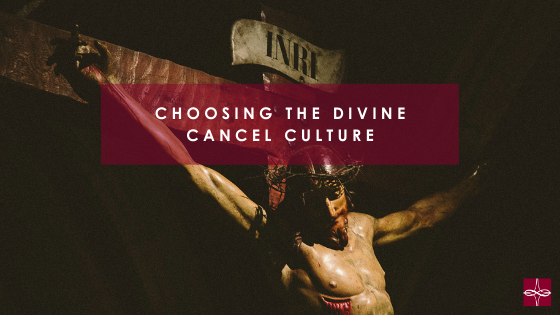
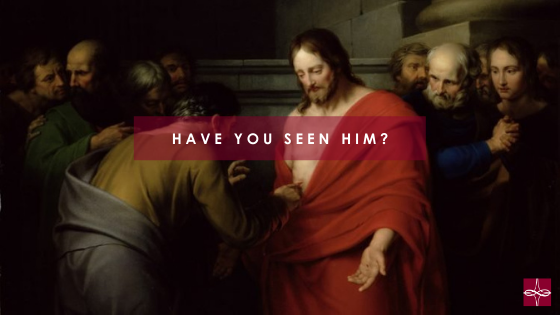

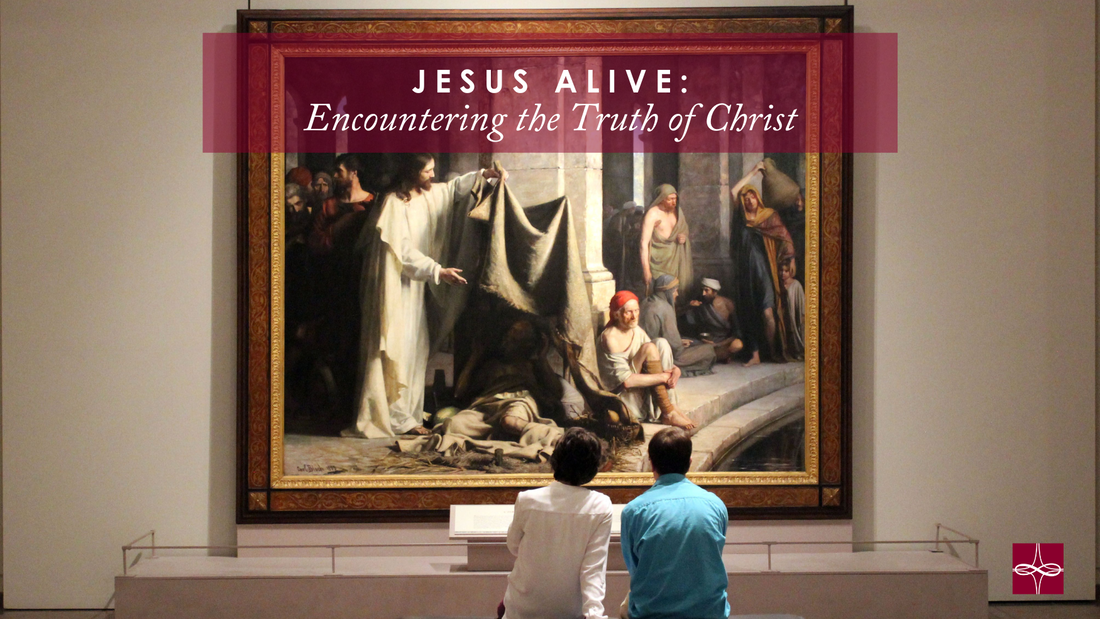
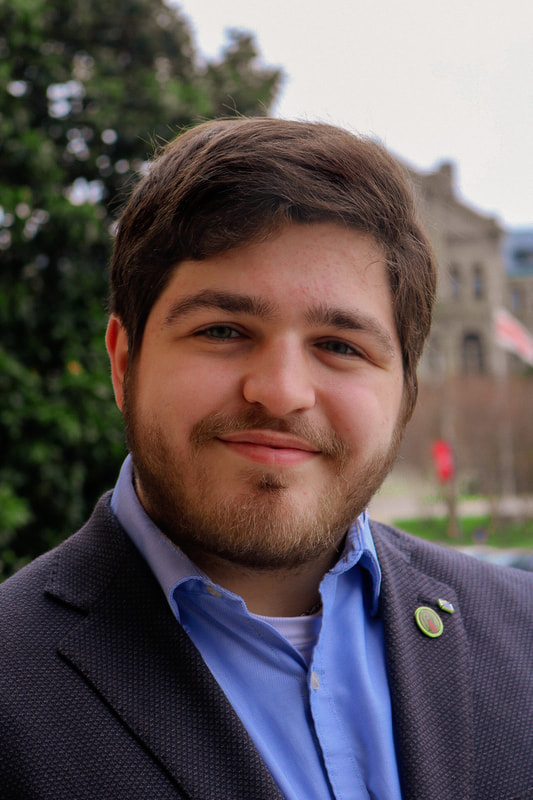
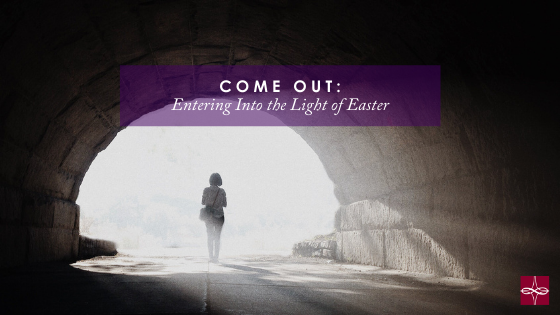
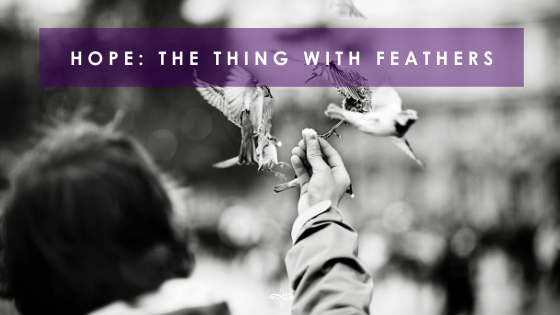
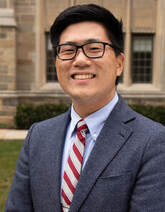
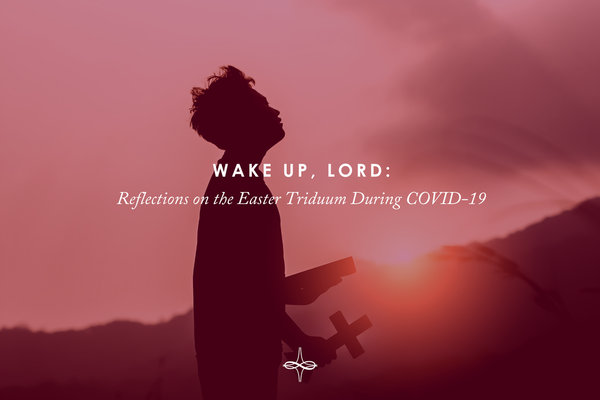

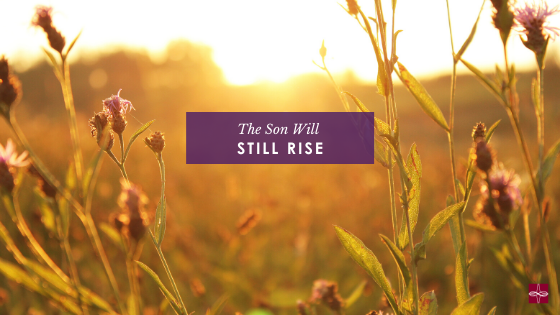

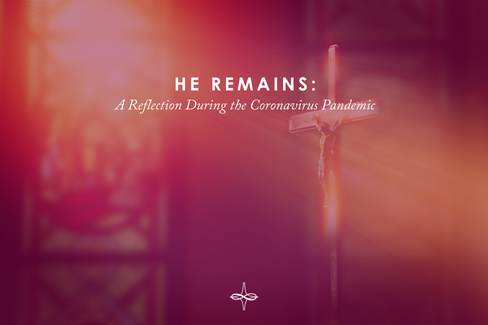

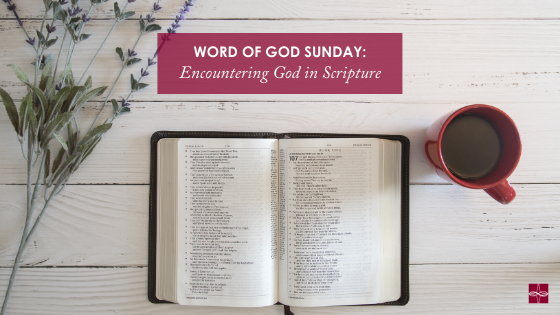
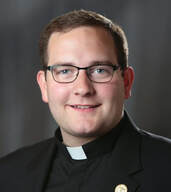
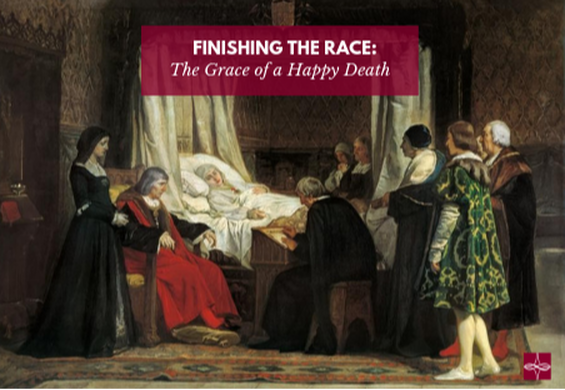

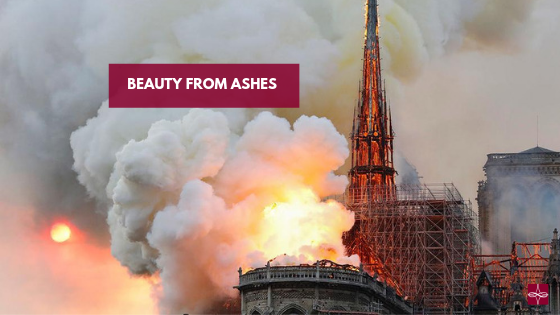

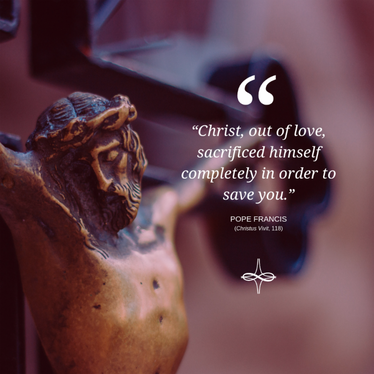
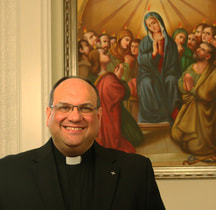
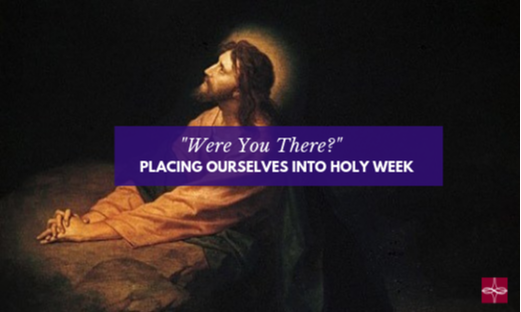

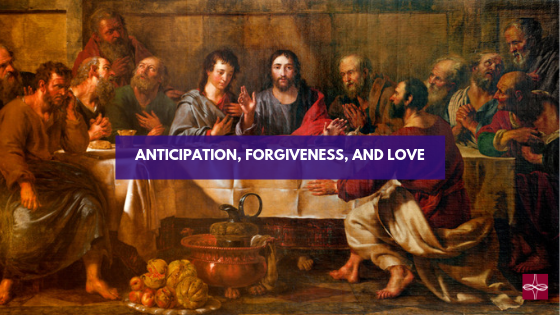

 RSS Feed
RSS Feed